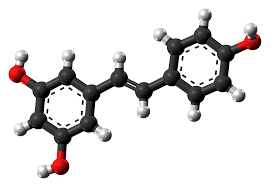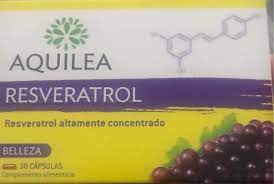Resveratrol Anti-aging Supplementation For Longevity

A new and landmark medical study suggest that a compound known as Resveratrol may be able to aid us in the war against aging greatly.
There is evidence that medicines derived from Resveratrol may one day allow us to live until we are 150. It is believed that inside the next 5 years, medical forms of Synthetic Resveratrol will likely reach the market and help us extend longer and healthier lives.
Resveratrol is a naturally occurring compound, one of the critical ingredients of red wine. There is significant evidence that Resveratrol and Synthetic Resveratrol derivatives can increase the enzymatic activity of a vital protein known as SIRT1. Medical researchers have now developed a strategy for synthesizing man-made Resveratrol for medical use.
The Pharmaceutical company GlaxoSmithKline has commenced clinical trials of Resveratrol to attempt to treat patients who are afflicted with age-related diseases such as diabetes, cancer, and cardiovascular disease.
SIRT1 May be the Ultimate Key to Longevity
Research regarding Resveratrol suggests that SIRT1 may be one of the primary keys to unlocking a longer and healthier life. Suppose the effects of this protein can be amplified. In that case, there is an excellent level of potential that manipulating this single human protein may have profound effects on human health and longevity, lengthening life and alleviating age-related disorders which impact the quality of life as well.
What is SIRT1?
The scientific name for SIRT1 is NAD-Dependent Deacetylase Sirtuin-1. Informally, the protein is known as Sirtuin 1. This protein performs a number of restorative functions in the body and protects the cells and organs against negative stimuli.
SIRT1 breaks down proteins that can hinder longevity and cause our bodies to respond negatively to stress. SIRT1 is one of the central biological players in stress reduction at the cellular level.
SIRT1 and other similar proteins help protect the cells from physiological breakdown when under duress. SIRT1 activation increases the rate at which DNA strands are repaired and slows down the rate at which the cells break down. For this reason, studies regarding this protein display an immense amount of promise in preventing the natural atrophy of the cells that occur as a result of the aging process.
It has been proven that SIRT1 can help cells live longer while remaining fully functional. Current studies in human patients seek to examine the ultimate promise of Resveratrol and Resveratrol Derivatives in enhancing and lengthening life by stimulating these vital protective proteins.

What is Resveratrol?
Resveratrol is a naturally occurring compound that is present in red wine and the skin of grapes. Although Resveratrol is most recognized for its connection to red wine, the compound is also present in other berries such as cranberries, blueberries, and pomegranate.
Peanuts have also been shown to contain a high level of Resveratrol Research shows that the compound has immense potential as a medical treatment and that the protein acts as both an anti-inflammatory agent and an antioxidant.
Although there is much evidence that supports the use of Resveratrol as a medical supplement, the amount of Resveratrol present in a glass of red wine is relatively low.
Pharmaceutical companies such as GlaxoSmithKlein are devoting large amounts of time, money, and research to create synthetic forms of Resveratrol that are concentrated and can provide medical benefits that are much more pronounced and potentially life-changing.
Although studies have been limited regarding Resveratrol so far, there is evidence that the protein may have a number of highly beneficial uses, including increasing exercise tolerance and boosting cognition. There is even evidence that Resveratrol and Resveratrol Derivatives may be able to safeguard the body against some of the devastating effects of Herpes and HIV.
117 Forms of Synthetic Resveratrol in Testing
117 medications are currently being tested to amplify the effects of SIRT1 by manipulating Resveratrol. Each of these drugs can affect SIRT1 activity in its own way, which means that there is an entirely new class of longevity medications in the process of being designed and perfected, which very well may have the capability to reduce the risk of a number of vicious diseases including Type-2 Diabetes, Alzheimer's Disease, and Cancer significantly.
Dr. David Sinclair is a professor of genetics at Harvard University and has spent a significant amount of his career studying SIRT1. He believes that this new group of drugs that amplify the activity of SIRT1 enzymes will have the ability to increase health and prevent disease in a number of significant ways. Each of these drugs will primarily focus on treating a particular disease.
Still, in treating one particular disease, the medicines can also prevent a number of other diseases at the same time that one primary disease is prevented. In doing so, these drugs will essentially have the unique ability to slow down the aging process.
Who is Dr. David Sinclair?
Dr. Sinclair is Co-Director of Paul F. Glenn Laboratory at Harvard Medical School. This laboratory is dedicated to studying the effects of the aging process and methods by which humans can extend their lives. Dr. Sinclair is one of the preeminent minds regarding Anti-Aging in the world. Dr. Sinclair has studied Resveratrol and was the first scientist to discover that the compound can activate and increase the activity of SIRT1.
SIRT1 is a unique enzyme turned on by exercise and caloric restriction. Although these two mechanisms are the primary means by which the human body produces more of the enzyme, there are certain compounds, such as Resveratrol which can enhance the activity of the protein medically.
Resveratrol Increases SIRT1 Enzyme Activity
Although several different compounds amplify SIRT1 activity, Resveratrol appears to be the most common and profligate form of SIRT1 enhancer. This compound naturally develops while crafting red wine, but the amplification strength is limited.
Scientists working with Resveratrol have the ultimate goal of tweaking the compound and making synthetic versions that are much more medically potent. Scientists are achieving this goal with aplomb.
Synthetic Resveratrol Shows Great Promise
Scientists, universities, and pharmaceutical companies have studied Resveratrol for over a decade. Until very recently, there has been debate about the basic biological mechanisms that lead to the drug's hypothetical medical benefits.
Although we are just learning how Resveratrol and its derivatives act within the human body, there have been a number of clinical trials regarding the  compound which suggest that Resveratrol provides a number of medical benefits regarding age-related disorders such as Parkinson's Disease, Alzheimer's Disease, Type-2 Diabetes, Heart Failure, Cardiovascular Disease, Cancer, Sleep Disorders, Muscle Atrophy, Osteoporosis, Cataracts, Liver Disease, as well as inflammatory issues such as colitis, arthritis, and psoriasis.
compound which suggest that Resveratrol provides a number of medical benefits regarding age-related disorders such as Parkinson's Disease, Alzheimer's Disease, Type-2 Diabetes, Heart Failure, Cardiovascular Disease, Cancer, Sleep Disorders, Muscle Atrophy, Osteoporosis, Cataracts, Liver Disease, as well as inflammatory issues such as colitis, arthritis, and psoriasis.
Researchers Confident that Resveratrol will Quickly Become a Widely Used Therapy
Dr. Sinclair is confident that Resveratrol will be converted into a new, unique, and powerful form of medical treatment in a matter of years. He says that in the entire history of medical science, Resveratrol Derivatives are the first class of drugs ever discovered that can increase the rate at which an enzyme functions. GlaxoSmithKlein bought the rights to Resveratrol and its related compounds in 2008 to unlock further drug use.
The pharmaceutical company is confident that this class of drugs displays an incredible amount of medical promise for those with age-related severe ailments.
Since Resveratrol was first successfully synthesized, more than 4000 derivatives have been designed, which are far more potent than Resveratrol alone, one hundred times stronger than the Resveratrol contained within a single glass of wine.
Resveratrol Will Likely First Be Used to Treat Diabetes
Dr. Sinclair believes that the first medical use of synthetic Resveratrol will be as a treatment for diabetes. Sinclair wrote an article in the publication Science, suggesting that Resveratrol can copy the benefits of exercise and diet without changing the patient's weight.
Small trials of SERT1 activators have been performed on Inflammatory Psoriasis and Type-2 Diabetes, which have shown great promise. In the psoriasis study, researchers found that Synthetic Resveratrol can alleviate the redness and peeling associated with psoriasis. In the Diabetes trial, the drug could increase and optimize metabolism, providing helpful health benefits.
Topical Resveratrol and Oral Resveratrol
These Synthetic Resveratrol Drugs are versatile and can be administered topically and orally. Thus far, there have been no drugs of this class that has been designed to alleviate the effects of aging upon the skin, but there is currently one topical skin cream that features Resveratrol.
Resveratrol as Preventative Medicine
Dr. Sinclair says that although each form of Resveratrol-based medication would only be prescribed for specific purposes soon, he believes that one day not too far away, medical forms of Resveratrol will begin to be prescribed as preventative medicine, not to treat any particular disease, but simply as a means of disease prevention and longevity.
Medically, Dr. Sinclair thinks that Resveratrol Derivatives will eventually be utilized in the same manner as Statin drugs. Statins are not used only to treat cardiovascular disease but to prevent the disease as well. There is strong evidence that Resveratrol can be used to treat numerous disorders. Still, the maximum level of benefit very well may be in the medical issues that drugs like Resveratrol can prevent, making lives happier, longer, and less medically afflicted.
Animal Studies Show Promise of Resveratrol
In animal research studies, obese mice provided synthesized Resveratrol were found to be able to run twice as far as trim mice and also lived fifteen percent longer than their otherwise healthy counterparts.
Although Resveratrol shows excellent promise in treating at-risk patients, Dr. Sinclair says that the next step in Resveratrol research is to see how the drug can benefit completely healthy patients. If Resveratrol can stave off diseases associated with aging, then Resveratrol Derivatives will likely quickly become a central player in any anti-aging health regimen.
Resveratrol Provides Evidence that Aging is a Disease
We've always had this idea that aging is something completely unavoidable. Still, as we learn more about human biology and physiology, we learn that the aging process is essentially a series of symptoms that slowly cause our bodies to degrade and atrophy. If we can treat the aging process's  symptoms, we can extend our lives significantly and very soon.
symptoms, we can extend our lives significantly and very soon.
One day, research on drugs like Resveratrol and Human Growth Hormone may allow us to breach the age of 150. Still, to accomplish that long-term goal, we must continue funding anti-aging and regenerative research so we can lengthen and enhance the lives of everyone.
GlaxoSmithKlein Resveratrol Study May Change Our Perception of Aging
This GlaxoSmithKlein study is one of the first of its kind to show how Concentrated Synthetic Resveratrol may be able to help us live longer than we ever thought possible. Although much research still needs to be done, preliminary results in animals and humans have been auspicious.
We believe that shortly, Synthetic Resveratrol will become another vital medical tool in the war against aging. Human Growth Hormone Replacement Therapy and Resveratrol Anti-Aging Therapy will be combined to maximize both treatments' health benefits.
HGH Injections can increase cellular rejuvenation, while Synthetic Resveratrol can protect the cells as a hyper-effective clinical strength antioxidant.
The Conscious Evolution Institute
The Conscious Evolution Institute is one of the best sources in America for high-quality Anti-Aging Therapy. We specialize in treatments such as Human Growth Hormone HRT, Testosterone Replacement Therapy, Estrogen Replacement Therapy, and HCG Therapy.
We also utilize supplements such as refined Resveratrol to maximize the benefits of the treatments we provide. Although Clinical-Strength Synthetic Resveratrol is still in clinical stages, natural Resveratrol is a safe and legal nutritional supplement.
If you are curious about Resveratrol or any form of Hormone Replacement Therapy, we encourage you to continue exploring HGH.tv for more information. Our website is intended as an informational resource to disseminate information about life-changing Anti-Aging Therapies.
If you feel you may be a potential candidate for any of the treatments we provide, we encourage you to call or email us today.
- 0001 What Is Adrenal Fatigue [Last Updated On: May 20th, 2025] [Originally Added On: October 23rd, 2020]
- 0002 Understanding Thyroid Function And Diagnosing Thyroid Issues [Last Updated On: May 21st, 2025] [Originally Added On: October 24th, 2020]
- 0003 Twelve Steps To Enhance And Preserve Your Memory [Last Updated On: January 28th, 2025] [Originally Added On: October 25th, 2020]
- 0004 The Psychological And Physiological Effects Of Serotonin [Last Updated On: January 28th, 2025] [Originally Added On: October 26th, 2020]
- 0005 The Facts About Psoriasis: Symptoms And Causes [Last Updated On: January 27th, 2025] [Originally Added On: October 27th, 2020]
- 0006 The Facts About Acromegaly [Last Updated On: May 24th, 2025] [Originally Added On: October 28th, 2020]
- 0007 The Effects Of Hgh Deficiency Upon One Of A Pair Of Twins [Last Updated On: January 27th, 2025] [Originally Added On: October 29th, 2020]
- 0008 Sermorelin Acetate Injections With Ghrp-6 [Last Updated On: February 18th, 2025] [Originally Added On: October 31st, 2020]
- 0009 Melatonin The Sleep Hormone How It Impacts Your Health [Last Updated On: May 26th, 2025] [Originally Added On: November 1st, 2020]
- 0010 Mark Cuban To Fund Study On Healing Power Of Hgh [Last Updated On: May 27th, 2025] [Originally Added On: November 2nd, 2020]
- 0011 Mark Cuban Advocates For Hgh As A Rehab And Recovery Tool [Last Updated On: January 26th, 2025] [Originally Added On: November 3rd, 2020]
- 0012 Leptin Hormone Guide: The Effects Of The Satiety Hormone [Last Updated On: January 26th, 2025] [Originally Added On: November 4th, 2020]
- 0013 Human Growth Hormone Deficiency Impact On Sleeping Habits [Last Updated On: January 25th, 2025] [Originally Added On: November 5th, 2020]
- 0014 Human Growth Hormone And Liver Regeneration [Last Updated On: January 25th, 2025] [Originally Added On: November 6th, 2020]
- 0015 Hgh Treatment For Fatty Liver Disease On The Horizon [Last Updated On: February 17th, 2025] [Originally Added On: November 7th, 2020]
- 0016 Your Current HGH Level [Last Updated On: March 28th, 2025] [Originally Added On: November 8th, 2020]
- 0017 Ghrelin The Hunger Hormone [Last Updated On: January 24th, 2025] [Originally Added On: November 9th, 2020]
- 0018 Enclomiphene Citrate Andropause Treatment Up For Fda Approval [Last Updated On: January 24th, 2025] [Originally Added On: November 10th, 2020]
- 0019 Dopamine Pleasure Hormone And So Much More [Last Updated On: April 26th, 2025] [Originally Added On: November 11th, 2020]
- 0020 Diabetes Cure On The Horizon [Last Updated On: January 23rd, 2025] [Originally Added On: November 12th, 2020]
- 0021 Boost Metabolism To Lose Weight And Maintain Weight Loss [Last Updated On: January 23rd, 2025] [Originally Added On: November 13th, 2020]
- 0022 Andropause A Mid-life Hormone Crisis [Last Updated On: February 18th, 2025] [Originally Added On: November 14th, 2020]
- 0023 SOGROYA INJECTIONS FOR HUMAN GROWTH HORMONE DEFICIENCY [Last Updated On: February 19th, 2025] [Originally Added On: March 24th, 2021]
- 0024 How Do High and Low Estrogen Impact Male Health and Wellness? [Last Updated On: February 9th, 2025] [Originally Added On: April 2nd, 2021]
- 0025 The Effects Of Hormone Imbalance On Belly Fat [Last Updated On: February 18th, 2025] [Originally Added On: May 8th, 2021]
- 0026 Could Sunlight Help Remove Rogue Hormones from the Water Supply? [Last Updated On: February 20th, 2025] [Originally Added On: May 29th, 2021]
- 0027 Weekly HGH Therapy Just as Effective as Daily Injections [Last Updated On: April 4th, 2025] [Originally Added On: June 18th, 2021]
- 0028 DHEA and Testosterone: A winning team! [Last Updated On: February 14th, 2025] [Originally Added On: January 19th, 2022]
- 0029 Animal Research Discovers Link Between Exercise, HGH, and Cognitive Ability [Last Updated On: February 14th, 2025] [Originally Added On: May 20th, 2022]
- 0030 Weekly Hormone Treatments for Adult HGH Deficiency with Sogroya [Last Updated On: February 18th, 2025] [Originally Added On: June 14th, 2022]
- 0031 Ancient Critters Made Human Hormone System What It Is Today [Last Updated On: March 13th, 2025] [Originally Added On: June 26th, 2022]
- 0032 How Substance Abuse Can Affect Your Hormone Levels [Last Updated On: March 16th, 2025] [Originally Added On: August 4th, 2022]
- 0033 A Holistic Approach to Health and Water Safety [Last Updated On: February 7th, 2025] [Originally Added On: February 7th, 2025]
- 0034 Understanding the Role of Sogroya in Adult Human Growth Hormone (HGH) Deficiency Treatment [Last Updated On: February 12th, 2025] [Originally Added On: February 11th, 2025]
- 0035 Andropause: An Examination of Mid-life Hormonal Shifts in Males [Last Updated On: February 16th, 2025] [Originally Added On: February 13th, 2025]
- 0036 Sermorelin Acetate Therapy: A Comprehensive Insight into its Benefits with GHRP-6 [Last Updated On: February 17th, 2025] [Originally Added On: February 14th, 2025]
- 0037 The Dynamic Duo of Male Vitality: Testosterone and DHEA [Last Updated On: February 14th, 2025] [Originally Added On: February 14th, 2025]
Word Count: 1974






